Herbie Hancock Quotes & Sayings (Page 9)
Herbie Hancock quotes and sayings page 9 (85 year old musician). Here's quote # 81 through 90 out of the 102 we have for him.
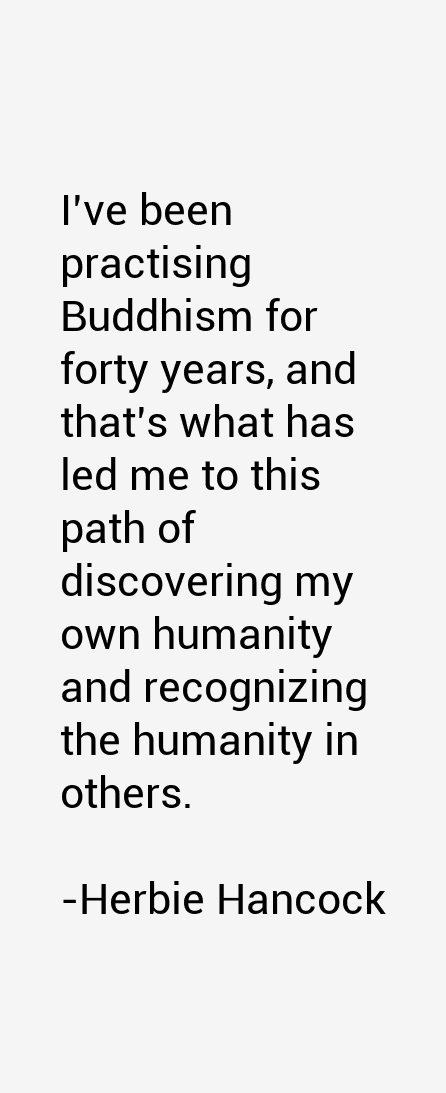
“I've been practising Buddhism for forty years, and that's what has led me to this path of discovering my own humanity and recognizing the humanity in others.”
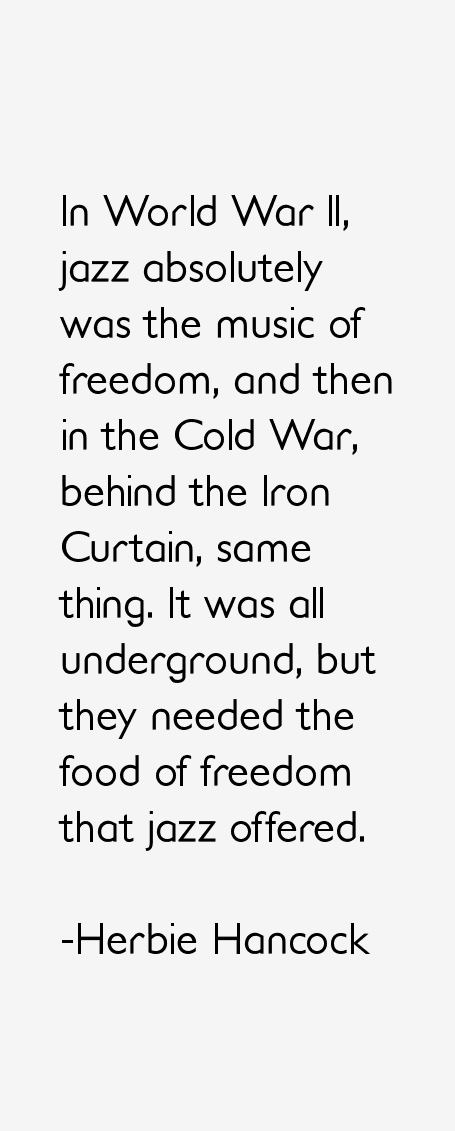
“In World War II, jazz absolutely was the music of freedom, and then in the Cold War, behind the Iron Curtain, same thing. It was all underground, but they needed the food of freedom that jazz offered.”
“One of the greatest experiences I ever had was listening to a conversation with Joni Mitchell and Wayne Shorter. Just to hear them talking, my mouth was open. They understand each other perfectly, and they make these leaps and jumps because they don't have to explain anything.”
“Clare Fischer was a major influence on my harmonic concept. He and Bill Evans, and Ravel and Gil Evans, finally. You know, that's where it really came from. Almost all of the harmony that I play can be traced to one of those four people and whoever their influences were.”
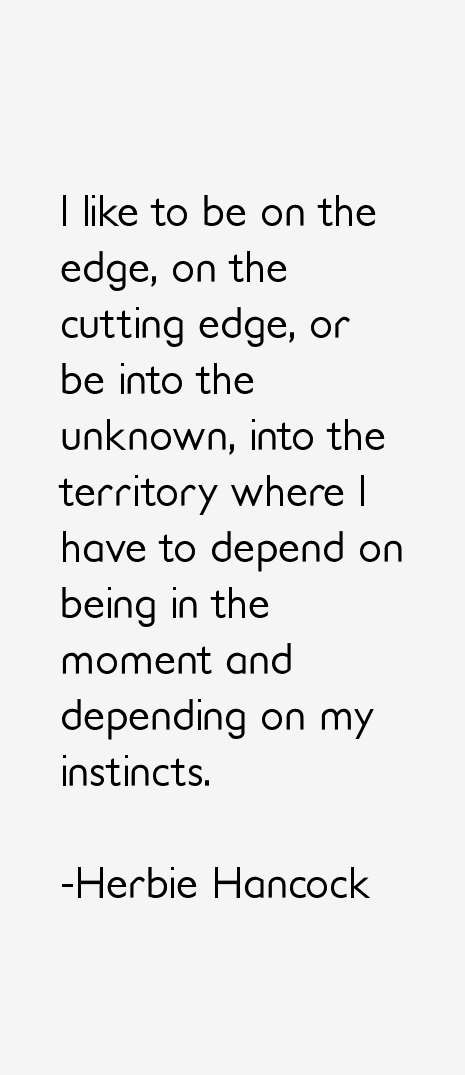
“I like to be on the edge, on the cutting edge, or be into the unknown, into the territory where I have to depend on being in the moment and depending on my instincts.”
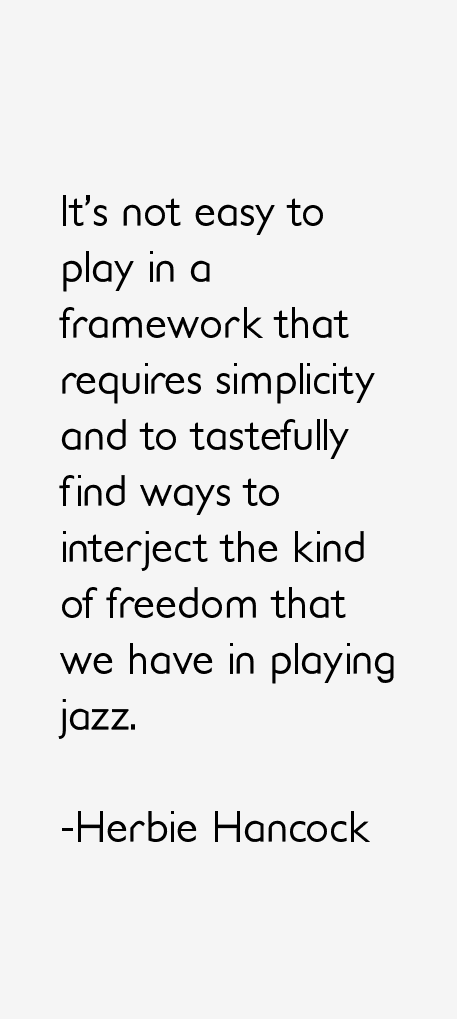
“It's not easy to play in a framework that requires simplicity and to tastefully find ways to interject the kind of freedom that we have in playing jazz.”
“Most people define themselves by what they do - 'I'm a musician.' Then one day it occurred to me that I'm only a musician when I'm playing music - or writing music, or talking about music. I don't do that 24 hours a day. I'm also a father, a son, a husband, a citizen - I mean, when I go to vote, I'm not thinking of myself as 'a musician.'”
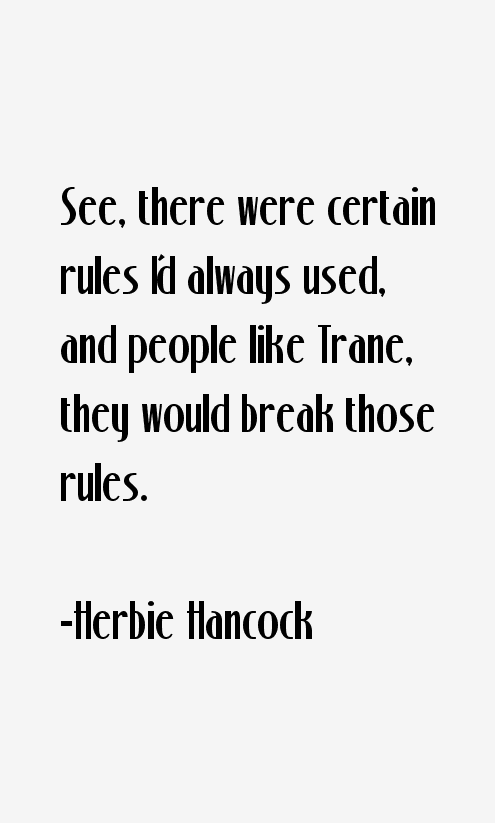
“See, there were certain rules I'd always used, and people like Trane, they would break those rules.”
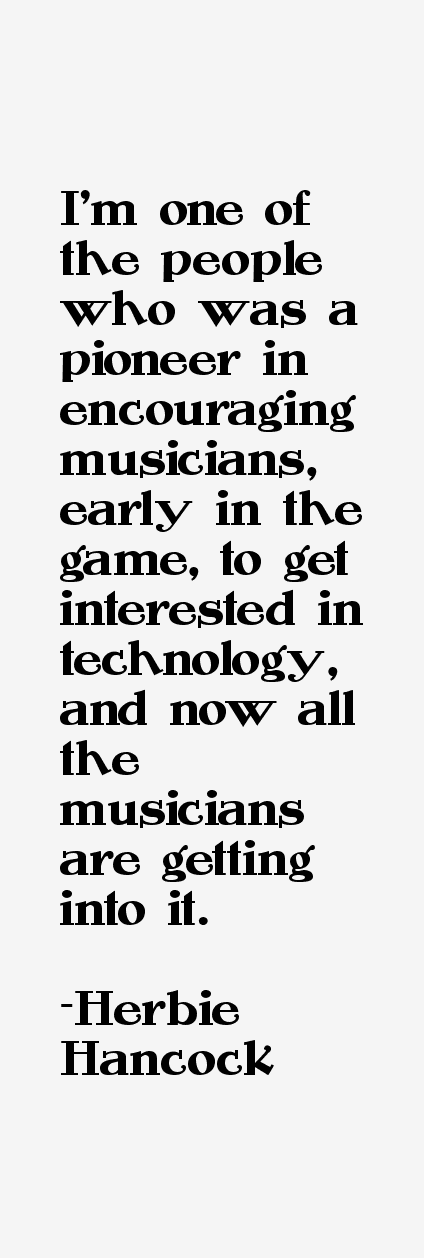
“I'm one of the people who was a pioneer in encouraging musicians, early in the game, to get interested in technology, and now all the musicians are getting into it.”
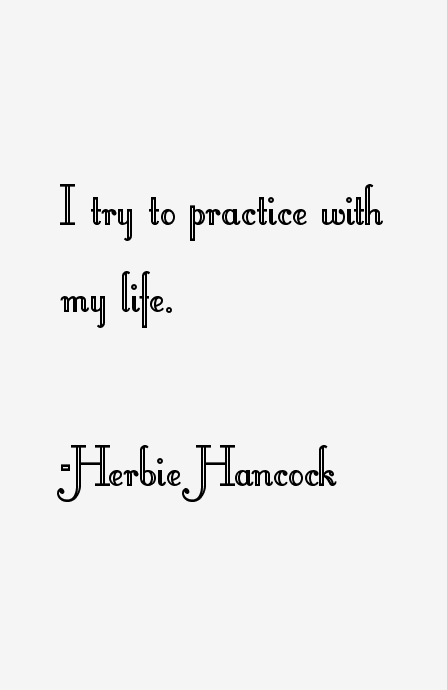
“I try to practice with my life.”
Herbie Hancock Quotes Rating
No Ratings Yet
Leave A Comment
























